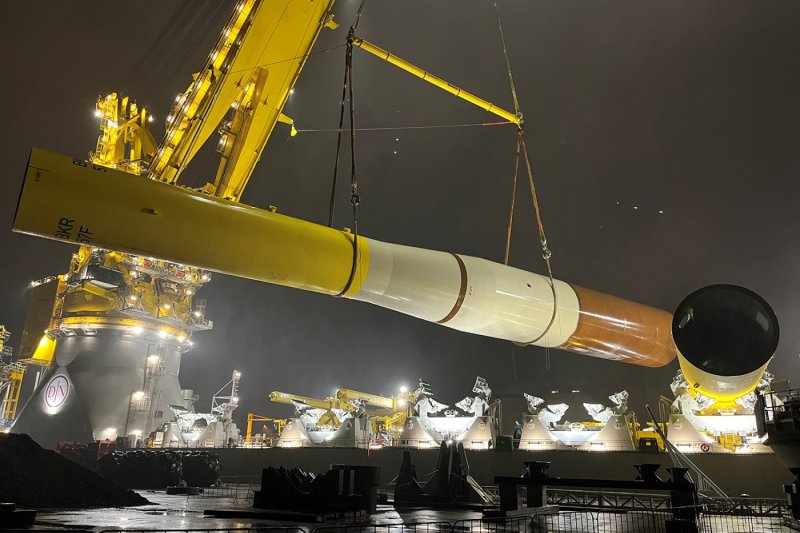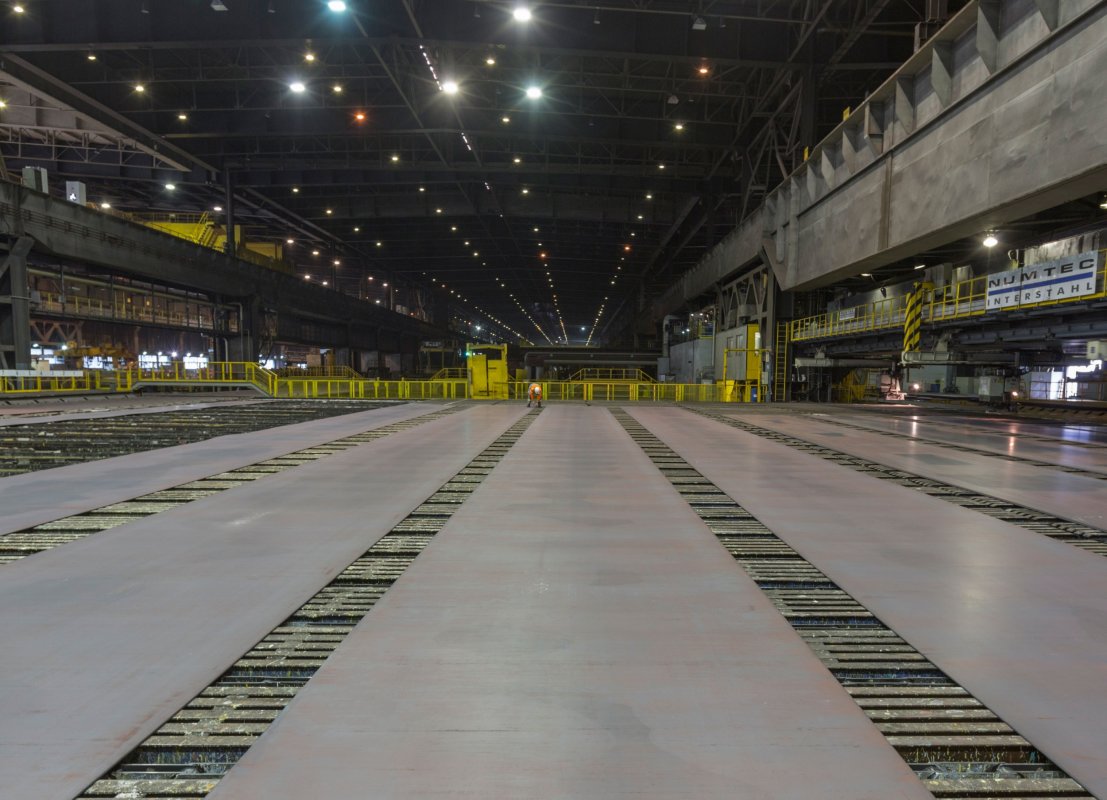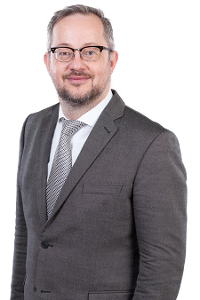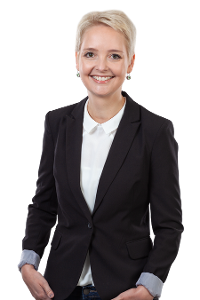
- News & Information
- Press Releases
Ørsted secures first access to lower-emission heavy plate steel through MoU with Dillinger
13. March 2024
Ørsted and Dillinger (Aktien-Gesellschaft der Dillinger Hüttenwerke) strengthen their partnership as the energy company secures first offer to procure Dillinger’s lower-emission heavy-plate steel for offshore wind foundations. Through the memorandum of understanding (MoU), Ørsted supports Dillinger’s efforts to drive the decarbonisation of steel production and leverages its influence to secure resilient supply chains, steel capacity, and the optionality to deliver on expected future costumer demands.
Today, Ørsted, the world leader in offshore wind, and Dillinger, the largest heavy steel plate producer in Europe, re-iterate the strength of their partnership by agreeing that Ørsted will be offered the first production of lower-emission steel from Dillinger, subject to availability and commercial terms and conditions. The steel plates form a part of the offshore wind monopile foundations and are intended to be used for future projects. Taking the current technology outlook into account, the reduction of the process-related carbon emissions from production is expected to be around 55-60 % compared to conventional heavy plate steel production.
Under a large-scale supply-agreement entered into in 2022, Ørsted will procure significant volumes of regular heavy plate steel from 2024, giving the company access at scale to and visibility of the most crucial raw material in offshore wind while providing Dillinger with the needed support to accelerate investments in new lower-emission steel production. Ørsted expects to be able to procure lower-emission steel produced at Dillinger’s plant in Dillingen, Germany, from 2027-2028.
The long-term offtake agreement is an example of how Ørsted’s scale in offshore wind procurement, industry-leading decarbonisation efforts, and strong partnership approach with suppliers are leveraged together to push for sustainable solutions supporting the green build-out. Agreements like this are required, alongside regulatory support, to drive down the cost of lower-emission steel through early demand signals, and, ultimately, to future-proof the European offshore wind supply chain through stable supply chains based on greener production methods. The partnership will strengthen Ørsted’s position in offshore wind by securing supply of a key raw material and visibility of capacity.
This follows the EU’s recent passing of the Net Zero Industry Act, which makes non-price criteria in renewable energy auctions mandatory within the EU. Thus, the agreement with Dillinger not only helps accelerate the decarbonisation of the steel industry; it also provides Ørsted with the optionality to deliver on expected decarbonisation criteria in coming auctions when they materialise.
Virginie Van de Cotte, Chief Procurement Officer at Ørsted, says: “At Ørsted, we have closer ties to the supply chain than any other offshore wind developer, and we’ll leverage these ties to support our business as well as the green transformation at large. Long-term offtake agreements like this one are key to decarbonising hard-to-abate materials such as steel because it takes clear demand signals to drive investments in the technologies needed to decarbonise production.
With this MoU, we’re pleased to help support Dillinger’s development of lower-emission steel facilities in Europe. This is an agreement which will also enable Ørsted to further diversify its supply chain, secure capacity, and deliver on expected future costumer demand.”
Stefan Rauber, CEO of Dillinger, says: "The agreement with Ørsted proves that steel made in Germany is relevant for the success of the climate and energy transition, and that it has a future. With the support of the German federal government, we’re now investing in the transformation of our production facilities to be able to produce carbon-reduced steel from 2027 onwards.”
Danny van der Hout, Chief Commercial Officer at Dillinger, adds: “We’d like to thank Ørsted for placing confidence in our expertise and the high quality of our steel. The Dillinger team is proud to contribute to the further expansion of renewable energy with its innovative products.”
Foundations are one of the largest sources of carbon emissions in an offshore wind farm’s life cycle, accounting for 21 %. Reducing those emissions is key for Ørsted to reach its 2040 science-based net-zero target.
Ørsted and net-zero wind farms
The deployment of offshore wind is crucial to enhancing energy security, advancing affordable energy for all, and not least curbing the climate crisis. Today, wind produces energy with a 99 % lower carbon footprint than coal, but on the scientific path to net-zero, carbon that stems from the manufacturing of materials and components used in wind farms needs to be reduced. This is also increasingly being demanded by consumers of renewable energy and policymakers.
Ørsted, the first company in the renewable energy industry with a science-based net-zero target, launched an industry-leading supply chain decarbonisation programme three years ago. Ørsted has been working closely with its strategic suppliers, including Dillinger, to reduce emissions in the renewable energy supply chain to incentivise the green transition. Today, two thirds of the company’s strategic suppliers cover their electricity consumption with renewable electricity, and 40 % have committed or already adopted a science-based target.
Together with other sustainability leaders, Ørsted is pooling its purchasing powers to drive demand for the technologies needed to decarbonise steel. Ørsted is a founding member of cross-sector initiatives such as the Climate Group’s SteelZero initiative and the World Economic Forum’s First Mover Coalition where they pledge to offtake volumes of lower-emission steel from 2030 (SteelZero: 50 % lower-emission steel by 2030, FMC 10 % ‘near-zero’ steel by 2030).
In June 2023, the company announced lower-emission projects across all key offshore wind components. By integrating and scaling cutting-edge decarbonisation solutions, Ørsted is building up capabilities to meet future customer demands for net-zero wind farms while creating incentives for investment in lower-emission technologies in the renewable energy supply chain.
For further information, please contact:
Ørsted Global Media Relations
Kathrine Ejlskov
+45 99 55 10 23
katej@orsted.com
Dillinger Public Relations
Martin Reinicke
+49 6898 10 2211
martin.reinicke@stahl-holding-saar.de
Juliane Wernet
+49 6898 10 2234
juliane.wernet@stahl-holding-saar.de
About Ørsted
The Ørsted vision is a world that runs entirely on green energy. Ørsted develops, constructs, and operates offshore and onshore wind farms, solar farms, energy storage facilities, renewable hydrogen and green fuels facilities, and bioenergy plants. Ørsted is recognised on the CDP Climate Change A List as a global leader on climate action and was the first energy company in the world to have its science-based net-zero emissions target validated by the Science Based Targets initiative (SBTi). Headquartered in Denmark, Ørsted employs approx. 8,900 people. Ørsted's shares are listed on Nasdaq Copenhagen (Orsted). In 2023, the group's revenue was DKK 79.3 billion (EUR 10.6 billion).
About Dillinger
Founded in 1685, the Aktien-Gesellschaft der Dillinger Hüttenwerke (Dillinger) is today a world leader in the manufacture of high-quality steel heavy plate. The Dillinger Group engages 6,200 employees in total. High-tech plate from Dillinger is used throughout the world in the realisation of exceptional and technically demanding projects in areas such as steel construction, mechanical engineering, the offshore sector, offshore wind power, line pipe manufacturing and boiler construction.
More information at: www.dillinger.de

Innovative top-quality steel products, total orientation around our customers' needs and unceasing technological development in close cooperation with our partners form the basis of our success - as they have for more than 333 years.
© 2016 Dillinger All rights reserved.
Contact
AG der Dillinger Hüttenwerke
Werkstraße 1
66763 Dillingen/Saar
Tel.: +49 6831 47 0
Fax: +49 6831 47 2212
E-Mail: info@dillinger.biz
Imprint
| Data privacy statement
| T&C




